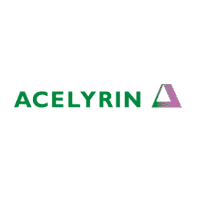预约演示
更新于:2026-02-28
VB-517
更新于:2026-02-28
概要
基本信息
非在研机构 |
最高研发阶段临床1期 |
首次获批日期- |
最高研发阶段(中国)- |
特殊审评- |
登录后查看时间轴
关联
100 项与 VB-517 相关的临床结果
登录后查看更多信息
100 项与 VB-517 相关的转化医学
登录后查看更多信息
100 项与 VB-517 相关的专利(医药)
登录后查看更多信息
24
项与 VB-517 相关的新闻(医药)2025-11-21
·博药
2025年11月10日,诺华宣布其新型口服药物Rhapsido(Remibrutinib,瑞米布替尼片)已获美国FDA批准,为经H1抗组胺药治疗后仍不能充分控制症状的慢性自发性荨麻疹(CSU)成人患者提供了新选择。
作为全球首个获批用于CSU的布鲁顿酪氨酸激酶抑制剂(BTKi),该药通过阻断BTK信号通路,抑制肥大细胞和嗜碱性粒细胞释放组胺及其他炎症介质,且每日两次口服,极大提升了治疗便捷性。
病情反复:慢性荨麻疹治疗缺口大
荨麻疹是一种以风团和瘙痒为主要表现的常见免疫相关性皮肤病,是一种肥大细胞介导性的过敏性皮肤病,是由于皮肤、黏膜小血管扩张及渗透性增加而出现的一种局限性水肿反应。
荨麻疹可发生于任何年龄和种族人群,公开数据显示全球发病率约为1%-30%。根据《中国难治性慢性自发性荨麻疹诊治指南(2025版)》,我国荨麻疹的终生患病率为7.30%,患病率为0.75%,女性荨麻疹的患病率高于男性[1]。其发生通常与食物过敏、感染、自身免疫反应、精神压力大等因素有关。
根据病程,荨麻疹可分为急性和慢性。病程超过6周即为慢性荨麻疹,其表现除瘙痒性风团和血管性水肿外,部分患者还可能伴有恶心、腹痛等系统症状,严重者甚至出现胸闷、血压下降及呼吸困难。
慢性荨麻疹可进一步分为慢性自发性荨麻疹和慢性诱导性荨麻疹(CIndU)。我国慢性荨麻疹的患病率高达2.6%[2]。由于其病因复杂且往往难以明确,超过80%的慢性患者属于找不到特定诱因的自发性荨麻疹,这导致疾病易反复发作,给治疗带来了持续挑战。
图1 慢性荨麻疹致病机制
数据来源:谷禾健康
70年:CSU治疗药物发展转变
在过去几十年中,CSU的治疗取得了显著进展。早期以第一代抗组胺药为主;随后在1980年代,基于临床证据,环孢素等免疫抑制剂开始被用于治疗传统治疗无效的CSU患者;1990年问世的第二代抗组胺药凭借其更佳的安全性成为一线基础治疗,为CSU患者提供了初步的症状控制手段。
2014年奥马珠单抗的获批标志着CSU治疗进入生物制剂时代,实现了从广泛免疫抑制到精准靶向的跨越。近年来,以度普利尤单抗为代表的生物制剂及以瑞米布替尼为代表的BTK小分子抑制剂不断涌现,在临床研究中展现出良好的疗效与安全性,推动CSU治疗策略持续完善。
图2 慢性荨麻疹治疗药物发展史
数据来源:药智咨询整理
指南:当前治疗策略与药物选择
目前,CSU的一线治疗首选标准剂量第二代抗组胺药,若治疗1–2周后症状控制不佳,可联合使用其他二代抗组胺药,或在充分告知风险并取得患者书面知情同意后,将原药物剂量增至2–4倍。根据2022版国际指南,可增至4倍剂量的二代抗组胺药包括:比拉斯汀、西替利嗪、地氯雷他定、依巴斯汀、非索非那定、左西替利嗪、卢帕他定等。
若经剂量递增或联合治疗2–4周后症状仍未控制,应考虑加用奥马珠单抗。尽管标准剂量、加倍剂量或联合使用二代抗组胺药是目前CSU的常规治疗策略,但约50%的患者对此类治疗反应不足。针对此类难治性患者,国内指南将以下4类药物列为具有1a级证据的强推荐:
奥马珠单抗:标准剂量300 mg皮下注射,每4周一次,可显著降低UAS7评分,约65.2%–91.1%患者在12周实现症状完全缓解;对标准剂量奥马珠单抗治疗12周后仍未充分应答的患者可继续维持12周治疗后再次评估。
环孢素:钙调磷酸酶抑制剂,一项纳人8项研究909例患者的meta分析显示,环孢素治疗难治性CSU患者4、8和12周的有效率分别为54.2%、65.9%和73.1%。该药可作为对奥马珠单抗治疗抵抗或奥马珠单抗使用不可及的难治性CSU患者的首选。
度普利尤单抗:IL‑4/IL‑13通路拮抗剂,临床试验显示其在UAS7、瘙痒严重程度评分等指标上均有显著改善。目前度普利尤单抗仅在日本和美国批准难治性CSU的适应证,但在我国属超适应证使用。
BTK抑制剂:瑞米布替尼通过不可逆的共价键与非活性构象的BTK结合发挥作用,瑞米布替尼在难治性CSU患者中表现出显著的疗效和良好的安全性,有望成为不适用奥马珠单抗治疗或奥马珠单抗治疗抵抗的难治性CSU另一重要治疗选择。
其中,瑞米布替尼是首个获批用于治疗慢性自发性荨麻疹的口服BTK抑制剂。在作用机制方面,通过抑制BTK以阻断组胺和促炎介质的释放,从而减轻慢性自发性荨麻疹患者的症状。除了用于慢性自发性荨麻疹的治疗外,该药还被研究用于其他与免疫系统相关的疾病,包括慢性诱导性荨麻疹、化脓性汗腺炎和食物过敏。目前,瑞米布替尼在欧盟、日本和中国均处于上市申请审评阶段,且该产品在中国已经被NMPA纳入优先审评。
表1 慢性自发性荨麻疹三类靶向药物Ⅲ期临床试验关键数据对比
药物
奥马珠单抗
度普利尤单抗
瑞米布替尼
作用机制
抗IgE抗体
IL-4Rα抑制剂
BTK抑制剂
试验名称
中国Ⅲ期研究
LIBERTY-CUPID研究C
REMIX-1 & REMIX-2
研发公司
基因泰克;诺华
赛诺菲;再生元
诺华
试验设计
随机、双盲、安慰剂对照
入组患者
418例
151例
REMIX-1:470例
REMIX-2:455例
给药方式
皮下注射(每4周300mg)
皮下注射(每2周300mg或200mg)
口服(25mg,每日两次)
有效性
瘙痒严重程度评分:下降71%
瘙痒评分:
试验组-8.64 vs. 安慰剂-6.10,P=0.02
-
疾病活动度:降低72%
荨麻疹活动评分(UAS7):
试验组-15.86 vs. 安慰剂-11.21,P=0.02
UAS7
REMIX-1:试验组-20.0 vs. 安慰剂-13.8,P<0.001
REMIX-2:试验组-19.4 vs. 安慰剂-11.7,P<0.001
风团数量:减少73%
完全缓解率:试验组30% vs. 安慰剂18%,P=0.02
UAS7≤6的比例
REMIX-1:试验组49.8% vs. 安慰剂24.8%,P<0.001
REMIX-2:试验组46.8% vs. 安慰剂19.6%,P<0.001
安全性
不良事件总体发生率
-
试验组53% vs. 安慰剂53%
-
注射部位反应
-
试验组12% vs. 安慰剂4%
-
剂量意外过量
-
试验组7% vs. 安慰剂3%
-
COVID-19感染
-
试验组8% vs. 安慰剂5%
-
组瘀点发生率
-
-
试验组3.8% vs. 安慰剂0.3%
数据来源:药智咨询整理
在研:CSU的多靶点竞争格局
尽管奥马珠单抗、度普利尤单抗以及瑞米布替尼为CSU的治疗带来了多重选择,但它们尚未被证实能诱导疾病长期缓解,且对部分患者疗效有限。因此可大致判断:现阶段的CSU领域并没有能实现真正临床治愈或持久缓解的疗法诞生,从第一代抗组胺药物到如今的口服BTK抑制剂,其每个阶段的新药产品都有其自身的产品定位。
药物类别
定位核心
覆盖人群
第一代抗组胺药物
历史一线,退居“辅助
-
第二代抗组胺药物
当下首选,常规病例一线主力
80%轻中症患者
IgE单克隆抗体(奥马珠单抗)
靶向突破,无缓解病例优选
抗组胺难治的中重度患者
免疫抑制剂
无IgE单抗使用条件者
奥马珠单抗无效/不耐受者
口服BTK抑制剂
创新补充,极端难治病例
前三线治疗均无效者
数据来源:药智咨询整理
而对于新药研发而言,根据药智数据显示,截至2025年11月20日,全球临床在研的慢性荨麻疹创新药项目约25个,其中17个已进入Ⅱ期及以上阶段,呈现出多靶点竞逐的研发格局。
在抗体药物领域,除已成熟的IgE靶点外,研发焦点正转向从源头阻断肥大细胞活化以及2型炎症通路。其中进展较快的为进入Ⅲ期临床的泰利奇拜单抗(Telikibart)、巴佐利单抗(Barzolvolimab)和莱戈利珠单抗(Ligelizumab)。
在小分子药物领域,研发方向更为多元,旨在通过不同通路抑制免疫细胞的异常激活,主要进展集中在三大类抑制剂:BTK抑制剂、JAK抑制剂以及新兴的MRGPRX2抑制剂。其中在研进展较快的为杭州高光的吉诺昔替尼(Girocitinib)。
JAK抑制剂:其通过结合细胞因子受体并激活STAT蛋白,调控多种细胞因子的表达。目前主要在特应性皮炎等皮肤病中显示出显著疗效,但在CSU中的应用数据有限,仅有少数产品(鲁索替尼和托法替尼)在治疗CSU患者有获益的数据。
在一项托法替布在真实世界治疗难治性CSU中的安全性和有效性临床研究(7名),20周随访结果显示,其在UAS7(荨麻疹活动度评分)和UCT评分(荨麻疹控制评分)方面的有效性显著(下图),证明托法替布可考虑作为CSU患者的治疗选择,尤其是对于那些奥马珠单抗或环孢素相对禁忌或疗效不佳的难治性患者。
图片来源:医脉通(点击查看大图)
但同时,领域内获益数据也仅限于少数病例报告,相关临床研究数据也多未公布,对于其副作用仍需谨慎评估。
MRGPRX2抑制剂:主要通过直接抑制G蛋白偶联受体、阻断下游信号(如钙离子升高)或激活抑制性受体(如CD300f)发挥作用,在CSU的临床阶段多处于早期。目前全球进展最快的MRGPRX2靶向药物EVO756在成人CSU患者中的2期试验已公布(四周):
93%的患者在FricTest评分或Pruritus-NRS方面均观察到临床反应。
70%的患者FricTest评分有所改善,其中30%的患者达到完全缓解。
78%的患者观察到Pruritus-NRS减少,其中41%的患者减少≥4分。
对比现有CSU疗法,其主要特点在于起效更迅速、适用人群更广泛(IgE水平≥100 IU/mL),且有望填补CSU合并物理性荨麻疹的治疗空白。
表2 全球临床在研慢性荨麻疹创新药(Ⅱ期及以上阶段)
药物类型
企业
药品名称
靶点
全球最高阶段
抗体
智翔金泰
泰利奇拜单抗
(Telikibart)
IL-4Rα
临床Ⅲ期
Celldex Therapeutics
巴佐利单抗
(Barzolvolimab)
KIT
临床Ⅲ期
诺华
莱戈利珠单抗
(Ligelizumab)
IgE
临床Ⅲ期
康诺亚
CM-512
IL13;TSLP
临床Ⅱ期
济烨生物
JYB-1904
IgE
临床Ⅱ期
礼来
尤森扑拜单抗
(Ucenprubart)
CD200R1
临床Ⅱ期
博安生物
BA-2101
IL-4Rα
临床Ⅱ期
Jasper Therapeutics;安进
贝瑞曲利单抗
(Briquilimab)
KIT
临床Ⅱ期
联合生物
UB-221
IgE
临床Ⅱ期
Acelyrin Inc;ValenzaBio
SLRN-517
KIT
临床Ⅱ期
小分子化药
杭州高光制药
吉诺昔替尼
(Girocitinib)
JAK;JAK1;TYK2
临床Ⅲ期
Dermira lnc;Evommune
EVO756
MRGPRX2
临床Ⅱ期
Blueprint Medicines;赛诺菲
BLU-808
KIT
临床Ⅱ期
人福药业
HWH-486
BTK
临床Ⅱ期
Escient Pharmaceuticals
EP-262
MRGPRX2
临床Ⅱ期
Inflarx NV
INF904
C5AR
临床Ⅱ期
大鹏药品工业株式会社
TAS-5315
BTK
临床Ⅱ期
数据来源:药智数据(如有错误请指正)
综合来看,在CSU的未来治疗格局中,BTK抑制剂(以瑞米布替尼为代表)凭借其明确的口服便捷性与上游靶向机制,确立了在难治性患者中的核心口服治疗地位,于经抗组胺药治疗失败或不适用的人群,填补了非注射靶向药物的关键空白,为患者提供了重要的口服序贯治疗选择。
而JAK抑制剂与小众亚型的MRGPRX2抑制剂目前则仍处于早期探索阶段,在CSU疗效与安全性的数据均尚不成熟。短期来看,领域内仍将以BTK抑制剂将与抗体药互补的局面为主。
小结
未来CSU的研究将主要集中于以下三个核心方向:在细胞调控层面,探索使用抗体精准靶向抗原提呈细胞、T细胞、B细胞及肥大细胞,以调节异常免疫应答并重建免疫耐受;在信号通路层面,开发如BTK通路抑制剂等新型小分子药物,深度控制肥大细胞的活化与脱颗粒过程,从上游阻断炎症信号的传导;在细胞因子层面,针对IL-4、IL-13、TSLP等2型炎症关键因子进行干预,抑制相关炎症级联反应,从而降低疾病复发频率与严重程度。这些研究不仅着眼于阻断CSU的疾病进展,更致力于实现从症状控制向病理修正的转变,最终目标是为患者带来持续缓解,延长生物标志物指导下的个体化缓解期,并推动CSU从慢性管理迈向临床治愈的终极愿景。
尽管CSU已成为国内外学者持续关注的研究热点,该领域仍存在众多待解之谜。例如,自身免疫机制及荨麻疹病理生理的基础研究仍需深入探索;2型炎症在部分慢性荨麻疹治疗中的作用机制尚不完全明确,亟需更多确凿证据来揭示其重要性。
在精准医疗的背景下,个体化治疗策略对于多种疾病的管理至关重要,尤其是在涉及小分子药物的靶向治疗领域。此外,传统抗组胺药的药物基因组学差异及其对患者个体的疗效与安全性影响,也是一个值得深入研究的科学问题。我们期待未来的治疗策略能够超越症状控制,实现疾病修饰、改变其自然进程、阻断核心病理生理机制,从而为荨麻疹的治疗带来突破性进展。
参考文献
1.Li J, Mao D, Liu S, Liu P, Tian J, Xue C, Liu X, Qi R, Bai B, Nie J, Ye S, Wang Y, Li Y, Sun Q, Tao J, Guo S, Fang H, Wang J, Mu Q, Liu Q, Ding Y, Zhang J. Epidemiology of urticaria in China: a population-based study. Chin Med J (Engl). 2022 Jun 5;135(11):1369-1375. doi: 10.1097/CM9.0000000000002172. PMID: 35830258; PMCID: PMC9433071.
2.中华医学会皮肤性病学分会,中国医师协会皮肤科医师分会,宋志强,高兴华,王刚,陈奇权.中国难治性慢性自发性荨麻疹诊治指南(2025版)[J].中华皮肤科杂志,2025,58(6):485-496
博腾股份成立于2005年,主要为全球药企、生物科技公司、科研机构等提供从临床前研究到药品上市全生命周期所需的小分子药物、多肽与寡核苷酸药物、蛋白与偶联药物以及细胞与基因治疗药物等一站式服务解决方案,研发、生产、运营场地覆盖中国(重庆、上海、四川、江苏、江西、湖北)、美国、斯洛文尼亚、比利时、瑞士和丹麦等地。我们始终坚持以客户为中心,致力于为客户提供创新、可靠的全球化、端到端CDMO服务,让好药更早惠及大众。
免责声明:本文仅作者个人观点的表达,文中观点不代表博腾及其所属子公司立场,亦不对本文所提供信息做任何形式的保证。同时,本文不做治疗方案推荐,也不承担因使用或依赖本文信息所产生的任何直接或间接的后果。如需获得治疗方案指导,请前往正规医院就诊。
引进/卖出
2024-12-19
·求实药社
近日,Acelyrin公司宣布,其用于治疗葡萄膜炎的izokibep药物在IIb/III期试验中未能达到主要及次要终点,统计学上无显著差异,因此决定终止该药物的进一步开发。Izokibep是一种白细胞介素-17a(IL-17A)的小蛋白抑制剂,旨在通过其高效和小分子大小来克服单克隆抗体的局限性。当前,Acelyrin针对Izokibep主要研究的疾病有化脓性汗腺炎、银屑病关节炎、中轴性脊椎关节炎和葡萄膜炎。
Izokibep曾作为Acelyrin的核心支柱,极大地推动了公司的发展,并使其在资本市场,无论是一级还是二级市场,都备受投资者的青睐。然而,这次的临床挫败以及随后的一系列责任归属争议,严重削弱了投资者对Acelyrin的信心。公司股价因此遭受重创,从上市之初的29.8美元/股暴跌至3.4美元/股,跌幅高达89%。
Acelyrin曾是2023年IPO规模最大的生物医药企业,为何一年之内Acelyrin从市场宠儿成为资本弃子?
买手型biotech
Acelyrin成立于2020年12月,由Horizon Therapeutics(被安进以260亿美元收购)的前研发负责人Shao-Lee Lin和前首席商务官Robert F. Carey共同创立。
Horizon Therapeutics的发展史是一部成功买手的晋级之路,最为知名的药物Tepezza也是从外部买入,最终成为一款年销售额20亿美元的blockbuster,而Horizon的其他管线也是大多源自外部收购。或许是继承了Horizon的买手基因,Acelyrin采取了同样的策略,寻找并购买具有市场前景的潜在颠覆性药物,复制Tepezza的成功故事。公司目前的在研管线全部都是从外部买入:
Izokibep:该药物最初是由Affibody公司研发,Acelyrin于2021年11月以2500万美元首付款和3亿美元里程碑付款的价格,引进了Izokibep的部分权益。而此前的2020年5月,国内的创响生物也引进Izokibep在大中华区、韩国的独家开发和商业化权利,以及日本外亚太地区的临床开发权利。
Lonigutamab与SLRN-517:这两款药物是Acelyrin于2023年,以收购ValenzaBio公司的形式获得。
与大多数药企引进早期管线不同的是,Acelyrin公司的管线以后期为主,且均集中于自身免疫系统疾病领域,其中:
Izokibep:一款白细胞介素 17A (IL-17A) 抑制剂,可以特异性结合IL-17A的两个亚基以及血清中的白蛋白,对靶点的亲和力高,分子量仅为单抗的十分之一,可以通过皮下注射,达到传统单抗静脉给药的吸收水平,同时还拥有不输于单抗的半衰期,在皮肤、关节等组织器官领域有着独特优势。
Lonigutamab :一款皮下给药的抗IGF-1R单抗药物,通过靶向IGF-1R的一个独特表位,可以增加疗效的持久性和耐受性,目前正在开展甲状腺眼病的临床2期试验。
SLRN-517:一种靶向 c-KIT 的全人源IgG1单克隆抗体,目前处于IND申报阶段。
两年累计融资11亿
2023年5月5日,Acelyrin在纳斯达克交易所上市,以每股18美元的价格发行了3000万股,募集资金5.4亿美元,是自2021年2月上市的Sana (NASDAQ:SANA)(5.88亿美元)之后,又一家募集金额超过5亿美元的Biotech公司,二者相隔达26个月之久。
上市后,公司股价首日暴涨30.56%。无论是定价、发行规模,还是首日涨幅,均显示出市场对公司的高度热情,Acelyrin一定程度上带动了生物医药行业的回暖,同日生物医药科技指数(ARCA:XBI)大涨1.65%。
在一级市场,Acelyrin也是受到多家知名机构追捧,完成5.58亿美元的融资,连同IPO的部分,公司在成立之后的短短25个月内,累计获得10.98亿美元的融资,Acelyrin成为Biotech行业寒冬之下的资本宠儿。
Acelyrin也是近些年为数不多的在一级市场屡创融资记录的Biotech公司。自成立以来,Acelyrin共完成了3轮融资,总融资金额达到5.58亿美元,股东不乏Venbio、Orbimed、RTW等知名机构。
Acelyrin从成立到上市,仅有短短25个月,累计获得近11亿美元的融资,且完成在纳斯达克上市,不仅融资规模上,而且在上市速度上,都是Biotech行业所罕见,尤其是在过去一年多时间的Biotech行业下行阶段,更加难能可贵,为什么Acelyrin获得资本市场的追捧?
独特的商业模式。与其他专注于自研药物管线的公司不同,Acelyrin采用买手模式,收购有潜力的药物,一定程度上加快了药物研发进度。
在管线的选择方面,Acelyrin不仅选择了银屑病关节炎 、化脓性汗腺炎等有较大市场潜力的适应症,而且管线的研发阶段偏后期,可以在较短时间内实现药物的商业化,而商业化预期正是当下加息环境中,资本市场最为看重的亮点。
甩锅CRO 加剧市场不信任
2023年9月,上市后一路高歌上涨的Acelyrin发布了izokibep治疗中度至重度化脓性汗腺炎(HS)的2b/3期试验的B部分的主要结果,数据没有实现统计学意义上的改善。
不过,Acelyrin仍坚持认为izokibep显示出了早期的HiSCR100应答,且没有证据表明安全性或耐受性受到限制,但市场并不满意,股价当日暴跌54.12%。
Izokibep虽然在化脓性汗腺炎领域数据不佳,但Izokibep还在探索银屑病关节炎等其他适应症,预计在2024年一季度获得银屑病关节炎2b/3期临床数据,部分投资人依然有所期待。
然而,Acelyrin的噩梦并未就此结束。去年11月,Acelyrin在更新Izokibep临床研发进展时宣称,公司发现负责临床试验的CRO公司Fortrea及其雇佣的供应商在执行时出现了重大失误,导致分组出错,剂量顺序有误,两组患者未按计划给药。
其中,公司明确指出Fortrea在正进行的银屑病关节炎临床试验中存在执行错误,同时引发了Acelyrin 合理怀疑此前失败的化脓性汗腺炎3期试验是不是也存在临床执行错误。消息一出,公司股价当日暴跌32.41%。
市场对于生物医药公司“谴责”CRO已经司空见惯,大多数情况下,这种谴责无非是掩盖数据不佳的托词,此外,更为重要的是Acelyrin此举对于即将发银屑病关节炎的试验数据蒙上阴影,市场也会进一步加深对Acelyrin公司的不信任。
结语
Acelyrin公司在核心管线折戟后,目前已将重点转向 Lonigutamab,这是一种针对 IGF-1R 的皮下单克隆抗体,正在开发用于治疗甲状腺眼病 (TED),并有望于 2025 年第一季度启动 Lonigutamab 的 3 期项目。
截至 2024 年 9 月 30 日,ACELYRIN 还拥有强劲的财务状况,拥有 5.624 亿美元的现金、现金等价物和短期有价证券,预计将维持该公司到 2027 年中期。
免责声明:
文章内容仅供参考,不构成投资建议。投资者据此操作,风险自担, 关于对文中陈述、观点判断保持中立,不对所包含内容的准确性、可靠性或完整性提供任何明示或暗示的保证。请读者仅作参考,并请自行承担全部责任。本公众号发布的各类文章重在分享,如有侵权请联系我们,我们将会删除。
联系我们
I-RNA 2025
展位火热预定中!
扫码立即咨询
电话:13816031174
(同微信)
赞助形式包括但不仅限于演讲席位、会场展位、会刊彩页、晚宴赞助、会议用品宣传等。
点击此处“阅读全文”咨询更多!
并购临床2期IPO临床3期
2024-12-16
新的临床失败成为了压死izokibep的最后一根稻草。
昨日,Acelyrin宣布izokibep治疗葡萄膜炎的IIb/III期试验失败,主要终点和次要终点均没有达到统计学意义,基于此结果,Acelyrin宣布放弃对izokibep的开发。
izokibep是支撑Acelyrin一路走来的最大功臣,是公司不论在一级市场还是二级市场都备受资本青睐的主要原因。
然而,在经历了一次临床失败以及甩锅事件后,Acelyrin失去了投资人的信心,公司股价也从当初上市的29.8美元/股跌至3.4美元/股,下跌了89%。
支柱管线
Izokibep是一种IL-17A抑制剂,是Acelyrin于2021年11月以2500万美元首付款+3亿美元里程碑付款从Affibody收购获得。
Izokibep的分子量仅为单抗的十分之一,可以通过皮下注射,达到传统单抗静脉给药的吸收水平。同时Izokibep还拥有不输于单抗的半衰期,在皮肤、关节等组织器官领域有着独特的治疗优势。
虽然只有这一款管线,但是资本对该管线的前景非常看好,加上Horizon公司被安进278亿美元收购的先列(Horizon与Acelyrin是同一创始团队),不论是一级市场还是二级市场,资本给足了Acelyrin支持。
凭借这一款管线,Acelyrin成立两年多以来完成了三轮融资,融资总额达到5.58亿美元。在二级市场,Acelyrin以5.4亿美元融资额创下近两年来生物技术初创公司募资规模最大的一次IPO。
然而IPO的风光只是保持了几个月。
2023年9月11日,Acelyrin报告了第一个临床失败消息。Izokibep治疗化脓性汗腺炎的Ⅱb/Ⅲ期临床达到临床反应(HiSCR)主要终点,结果显示:在16周时的HiSCR75(脓肿和炎性结节减少至少75%)评分中,两个izokibep给药组相比对照组均未达到显著差异。
受此影响,Acelyrin股价盘后暴跌了62%。
Acelyrin仍然对izokibep持乐观态度,引用了该临床中的HiSCR100(脓肿和炎性结节减少100%)这一数据,继续进行Ⅲ期临床试验。
解释太多
不过,Acelyrin似乎对这一临床失败耿耿于怀,试图为失败临床找到理由,根据公司当时对失败原因的推测,Acelyrin认为临床终点未达到可能是受到停药的影响,也可能是源自临床试验设计缺陷。
顺着这一推测,Acelyrin很快找到了为该临床失败的过错方--合作的CRO公司Fortrea。2023年11月27日,Acelyrin公告发文表示,Fortrea在Izokibep进行银屑病关节炎(PsA)临床试验时犯了“临床方案执行错误”,导致公司遭受损失。
尽管Acelyrin没有直指这项失败的临床试验,但话里话外都暗示有可能这家CRO公司的临床执行失误导致的,因为该项临床也是由该CRO公司负责推进的。
而Fortrea认为Acelyrin在甩锅,这公司对Acelyrin发布的关于izokibep两项临床试验声明的准确性提出了质疑。
然而也许是解释越多,破绽越多。甩锅给CRO公司并没有挽回投资人的信心,反而还引发了对Acelyrin的执行力的怀疑。此外,这则公告也似乎暗示了Izokibep在银屑病关节炎中取得的数据并不乐观。
Acelyrin的股价在该事件公布后又下跌了30%。
临床失败加上甩锅乌龙很快引发了后续一系列公司动荡。
2024年5月,Acelyrin的创始人兼首席执行官Shao-Lee Lin辞职,并立即进行了裁员重组,比重约33%。
这个重组方案最让人意外的是,这款支撑公司一路走来的核心管线被下调优先级,并且暂停对Izokibep在银屑病关节炎和化脓性汗腺炎两个适应症上的任何资金投入。
能否复制?
Acelyrin目前还有一条唯一管线Lonigutamab,这是公司在2023年年初通过收购ValenzaBio公司获得,一同获得还有一条管线SLRN-517,一种靶向c-KIT的全人源IgG1单抗,用于治疗慢性荨麻疹,还未进入临床阶段。不过,SLRN-517在的重组方案中已经被放弃了。
Lonigutamab是一种靶向IGF-1R单抗,目前在甲状腺眼病中进行临床Ⅱ期试验。
Acelyrin也许是想重现Horizon的成功,Horizon最为核心产品Tepezza也是一款IGF-1R单抗,作为目前首个且唯一一款获得FDA批准TED治疗药物,Tepezza一进入市场就实现大卖,上市首年便斩获8.2亿美元的销售额,第二年便成为重磅炸弹。因为手握这样的重磅产品,Horizon也成为了收购标的中的香饽饽,2022年12月被安进以278亿美元巨资收购。
不过,Tepezza也面临着竞争,目前全球有多款IGF-1R单抗在研,Viridian(Veligrotug)以及信达(IBI311)的IGF-1单抗都推进到临床Ⅲ期阶段。
作为后来者的Acelyrin,能再次复制Horizon的成功吗?
参考出处:
https://www.biospace.com/drug-development/acelyrin-terminates-izokibep-after-failed-phase-iib-iii-uveitis-data
本周好文推荐
如需转载请联系佰傲谷并在醒目位置注明出处
·
·
·
·
·
·
·
·
并购临床3期IPO临床2期临床失败
100 项与 VB-517 相关的药物交易
登录后查看更多信息
研发状态
10 条进展最快的记录, 后查看更多信息
登录
| 适应症 | 最高研发状态 | 国家/地区 | 公司 | 日期 |
|---|---|---|---|---|
| 慢性荨麻疹 | 临床1期 | 美国 | - | |
| 肥大细胞增多症 | 临床1期 | - | - | |
| 肥大细胞增多症 | 临床1期 | - | - |
登录后查看更多信息
临床结果
临床结果
适应症
分期
评价
查看全部结果
| 研究 | 分期 | 人群特征 | 评价人数 | 分组 | 结果 | 评价 | 发布日期 |
|---|
No Data | |||||||
登录后查看更多信息
转化医学
使用我们的转化医学数据加速您的研究。
登录
或

药物交易
使用我们的药物交易数据加速您的研究。
登录
或

核心专利
使用我们的核心专利数据促进您的研究。
登录
或

临床分析
紧跟全球注册中心的最新临床试验。
登录
或

批准
利用最新的监管批准信息加速您的研究。
登录
或

生物类似药
生物类似药在不同国家/地区的竞争态势。请注意临床1/2期并入临床2期,临床2/3期并入临床3期
登录
或

特殊审评
只需点击几下即可了解关键药物信息。
登录
或

生物医药百科问答
全新生物医药AI Agent 覆盖科研全链路,让突破性发现快人一步
立即开始免费试用!
智慧芽新药情报库是智慧芽专为生命科学人士构建的基于AI的创新药情报平台,助您全方位提升您的研发与决策效率。
立即开始数据试用!
智慧芽新药库数据也通过智慧芽数据服务平台,以API或者数据包形式对外开放,助您更加充分利用智慧芽新药情报信息。
生物序列数据库
生物药研发创新
免费使用
化学结构数据库
小分子化药研发创新
免费使用


